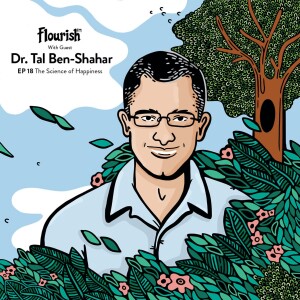
Tuesday Jan 03, 2023
Episode #18: The science of happiness, with Dr. Tal Ben-Shahar
In this episode, we talked to happiness expert Dr. Tal Ben-Shahar about the science of happiness, focusing on his account of happiness as “wholebeing,” comprised of five elements of well-being which make up his “SPIRE” model: Spiritual, Physical, Intellectual, Relational and Emotional well-being.
Tal Ben-Shahar is an author and lecturer who taught two of the largest classes in Harvard University’s history, Positive Psychology and The Psychology of Leadership, and taught Happiness Studies at Columbia University. His books on happiness have been translated into more than thirty languages and have appeared on bestseller lists around the world, and his work has featured on media outlets including CNN, BBC and the Daily Show.
Tal obtained his PhD in Organizational Behavior and BA in Philosophy and Psychology from Harvard. Today he consults and lectures around the world to executives in multinational corporations, including Google and Microsoft, the general public, and at-risk populations. Tal is a serial entrepreneur, and is the co-founder and chief learning officer of Happiness Studies Academy, Potentialife, Maytiv, and Happier.TV.
Key conversation points:
- How Tal defines happiness and its relation to flourishing: flourishing is the outcome of happiness
- The relation between Tal’s “SPIRE” model of happiness and flourishing, and between happiness and wholeness
- Tal’s definition of spirituality as living a life in which we see our activities as meaningful and purposeful
- Practices for building spiritual wellbeing: exercise to write down a “calling description” rather than a job description
- Tal’s criticism of widespread hurriedness today, and a strategy for going through life in less of a hurry
- The connection between happiness and “antifragility”
- Antifragility as “Resilience 2.0,” and its connection with post-traumatic growth: not only bouncing back, but becoming stronger and healthier than before
- A principle Tal recommends for recovering from trauma: “things don’t happen for the best, but we can make the best of things that happen,” and how to apply this to our lives
- The connection between physical exercise and happiness: “not exercising is like taking a depressant”
No comments yet. Be the first to say something!